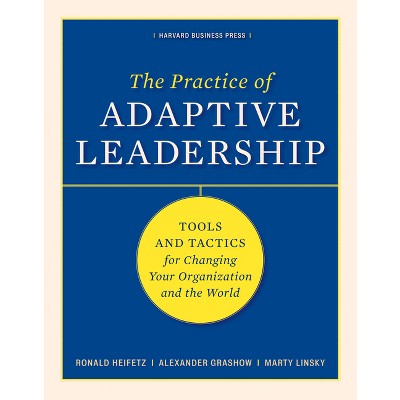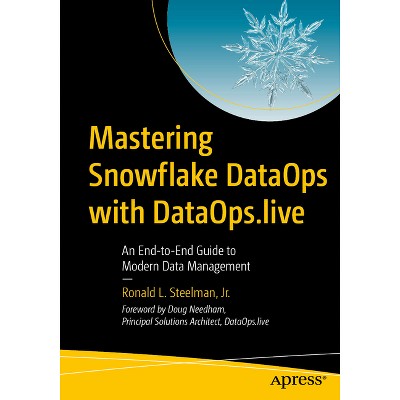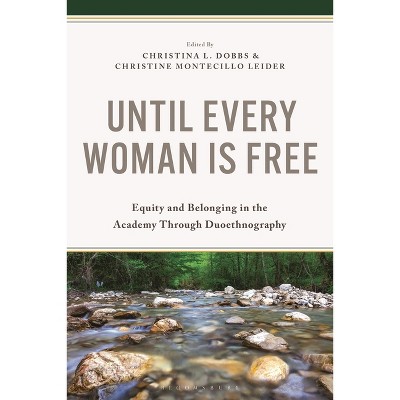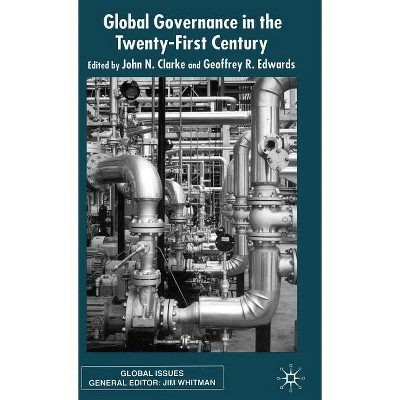Sponsored

Adaptive Governance - by Ronald Brunner & Toddi Steelman & Lindy Coe-Juell & Christina Cromley & Christine Edwards & Donna Tucker (Paperback)
In Stock
Sponsored
About this item
Highlights
- Drawing on five detailed case studies from the American West, the authors explore and clarify how to expedite a transition toward adaptive governance and break the gridlock in natural resource policymaking.
- About the Author: Ronald D. Brunner is a policy scientist and professor at the University of Colorado; Toddi A. Steelman is associate professor of environmental and natural resource policy at North Carolina State University; Lindy Coe-Juell is a policy analyst with the U.S. Government Accountability Office (GAO) in Los Angeles; Christina M. Cromley is a policy analyst with the GAO in Washington, D. C.; Christine M. Edwards is the alumni coordinator for the School for Field Studies in Salem, Massachusetts; Donna W. Tucker is a doctoral student in environmental studies at the University of Colorado.
- 368 Pages
- Science, Environmental Science
Description
About the Book
Drawing case studies, the authors of this work examine how adaptive governance breaks the gridlock in natural-resource policy. Unlike scientific management, which relies on science as the foundation for policies made through a central authority, adaptive governance integrates other types of knowledge into the decision-making process. The authors emphasize the need for open decision making, recognition of multiple interests in questions of natural-resource policy, and an integrative, interpretive science to replace traditional reductive, experimental science.
Book Synopsis
Drawing on five detailed case studies from the American West, the authors explore and clarify how to expedite a transition toward adaptive governance and break the gridlock in natural resource policymaking. Unlike scientific management, which relies on science as the foundation for policies made through a central bureaucratic authority, adaptive governance integrates various types of knowledge and organizations. Adaptive governance relies on open decision-making processes recognizing multiple interests, community-based initiatives, and an integrative science in addition to traditional science.
Case studies discussed include a program to protect endangered fish in the Colorado River with the active participation of water developers and environmentalists; a district ranger's innovative plan to manage national forestland in northern New Mexico; and how community-based forestry groups are affecting legislative change in Washington, D.C.Review Quotes
...highly relevant in the context of the current search for effective guidance on participatory and deliberative policy-making...-- "Local Government Studies"
Anyone interested in the use of ERD in environmental and natural resources management... will find these books useful.-- "Perspectives on Polotics"
Recommended.-- "Choice"
This guide should prove worthwhile for both public officials and private citizens.-- "High Country News"
About the Author
Ronald D. Brunner is a policy scientist and professor at the University of Colorado; Toddi A. Steelman is associate professor of environmental and natural resource policy at North Carolina State University; Lindy Coe-Juell is a policy analyst with the U.S. Government Accountability Office (GAO) in Los Angeles; Christina M. Cromley is a policy analyst with the GAO in Washington, D. C.; Christine M. Edwards is the alumni coordinator for the School for Field Studies in Salem, Massachusetts; Donna W. Tucker is a doctoral student in environmental studies at the University of Colorado.










